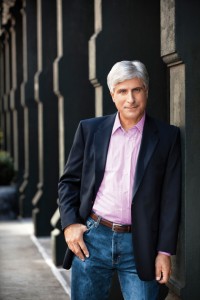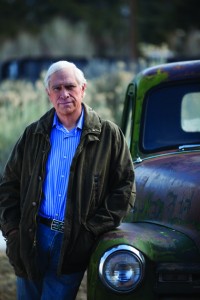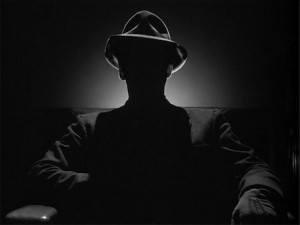 Steve Berry is the international bestselling author of nine Cotton Malone historical thrillers and four stand-alone thriller novels. His books have been translated into forty languages. History—Steve’s passion—lies at the heart of each one. Over the years, he has received many honors. In 2013, he was the recipient of the Poets & Writers’ Barnes & Noble Writers for Writers Award; the International Thriller Writers Silver Bullet Award; and the Spirit of Anne Frank Human Writes Award. He is a founding member of International Thriller Writers; and in addition to writing, is heavily involved in preservation of historic sites. His storytelling continues with the release of his new novel, The Lincoln Myth
Steve Berry is the international bestselling author of nine Cotton Malone historical thrillers and four stand-alone thriller novels. His books have been translated into forty languages. History—Steve’s passion—lies at the heart of each one. Over the years, he has received many honors. In 2013, he was the recipient of the Poets & Writers’ Barnes & Noble Writers for Writers Award; the International Thriller Writers Silver Bullet Award; and the Spirit of Anne Frank Human Writes Award. He is a founding member of International Thriller Writers; and in addition to writing, is heavily involved in preservation of historic sites. His storytelling continues with the release of his new novel, The Lincoln Myth
“The Kill Switch”: A Talk with James Rollins
 James Rollins is the New York Times bestselling author of the Sigma Force series and other novels. Blending science and history, his action-adventure novels have been praised as “enormously engrossing” (NPR) and “smart, entertaining adventure fiction” (New York Journal of Books). Before pursuing a writing career, Jim obtained a degree in veterinary medicine and established a successful veterinary practice in Sacramento, California.
James Rollins is the New York Times bestselling author of the Sigma Force series and other novels. Blending science and history, his action-adventure novels have been praised as “enormously engrossing” (NPR) and “smart, entertaining adventure fiction” (New York Journal of Books). Before pursuing a writing career, Jim obtained a degree in veterinary medicine and established a successful veterinary practice in Sacramento, California.
The Kill Switch involves Tucker Wayne, a former U.S. Army Ranger and member of the Sigma Force, and his fabulous Belgian shepherd, Kane. They must extract a pharmaceutical scientist from Russia, a man who knows the secret behind a biological threat that in the wrong hands, could terrorize the entire world. The mystery goes back to the origins of life on earth, and time is running out for Tucker and Kane to discover the key to this potential threat. The novel treks across Russia, then to South Africa, and finally to the United States.
“The Blond” A Talk with Anna Godbersen
 Anna Godbersen is the bestselling author of The Luxe series and Bright Young Things. Her new novel, The Blonde, is her first foray into adult fiction and is a compulsively gripping read. It re-imagines the life of Marilyn Monroe in a way that becomes a thriller/mystery with a truly amazing twist at the end.
Anna Godbersen is the bestselling author of The Luxe series and Bright Young Things. Her new novel, The Blonde, is her first foray into adult fiction and is a compulsively gripping read. It re-imagines the life of Marilyn Monroe in a way that becomes a thriller/mystery with a truly amazing twist at the end.
Field of Prey: A Talk with John Sandford
 We know him as John Sandford, but that’s his nom de plume. As journalist John Camp, he won the 1986 Pulitzer Prize for his five-part series about an American farm family faced with an agricultural crisis. He eventually turned to writing thriller novels, and his twenty-fourth Prey novel, Field of Prey, featuring Lucas Davenport, will be available everywhere on May 5th, 2014. Lucas and his team must use all possible resources to try capturing an elusive killer or killers who claim at least twenty victims over a course of years.
We know him as John Sandford, but that’s his nom de plume. As journalist John Camp, he won the 1986 Pulitzer Prize for his five-part series about an American farm family faced with an agricultural crisis. He eventually turned to writing thriller novels, and his twenty-fourth Prey novel, Field of Prey, featuring Lucas Davenport, will be available everywhere on May 5th, 2014. Lucas and his team must use all possible resources to try capturing an elusive killer or killers who claim at least twenty victims over a course of years.
Fast and Furious: Novels, the Media and our Changing World
 I’ve been reading a great deal of fiction (crime, literary and other genres) and observing as much as possible, not only about books, but about entertainment in various media.
I’ve been reading a great deal of fiction (crime, literary and other genres) and observing as much as possible, not only about books, but about entertainment in various media.
It seems there’s more and more blending of crime novels with horror, the occult, with paranormal events, romance, and science fiction. The genres are coalescing.
Read more on the Huffington Post >>
The End Is Not The Means
 I read an article in which the novelist, Kristopher Jansma, explored the issue of finding the proper ending for a novel. He was plagued by the question of leaving the ending ambiguous, or of tying things up in a neat knot—one that would leave the reader “satisfied.”
I read an article in which the novelist, Kristopher Jansma, explored the issue of finding the proper ending for a novel. He was plagued by the question of leaving the ending ambiguous, or of tying things up in a neat knot—one that would leave the reader “satisfied.”
The article referenced Aristotle, and Rowling, and quoted Chekhov and Vonnegut, saying among other things, “a novel aims not to represent just a slice of life, but the whole of it. We need more than just artfully posed questions. We expect to know unambiguously who is virtuous and who is corrupt, and have a novelist mete out fates accordingly.”
The author commented on the occasional need for an ambiguous ending to a novel, quoting from The Gotham Writer’s Guide.
Read more on the Huffington Post >>
What? Spoilers Enhance Enoyment of Thrillers & Mysteries?
 I recently read an article claiming that readers who flip to the end of a thriller to check what will happen have more fun than those who endure the suspense to eventually learn the outcome. I found this difficult to believe. The study cited research done by the University of California at San Diego’s Psychology Department, which gave subjects short stories by Agatha Christie, Roald Dahl and John Updike.
I recently read an article claiming that readers who flip to the end of a thriller to check what will happen have more fun than those who endure the suspense to eventually learn the outcome. I found this difficult to believe. The study cited research done by the University of California at San Diego’s Psychology Department, which gave subjects short stories by Agatha Christie, Roald Dahl and John Updike.
To quote from the article, “Subjects significantly preferred the spoiled versions of ironic-twist stories, where, for example, it was revealed before reading that a condemned man’s daring escape is all a fantasy before the noose snaps tight around his neck. The same held true for mysteries. Knowing ahead of time that Poirot will discover the apparent target of attempted murder is, in fact, the perpetrator not only didn’t hurt enjoyment of the story, but actually improved it.”
The “Bada Bing” of the Novel
I occasionally read a novel in which there are many references to popular culture in the storyline. This is particularly true in James Hynes’s hauntingly disturbing and must-read novel, Next. Among other popular cultural references, Next reads:
“…so he orders an iced tea.
“With legs?” says the golden blond, absently pressing a key on the register.
“Pardon?” Starbucks is like its own country, you have to know the silly argot.
“To go?” says the fortysomething woman, in a rising Texas singsong. “’With legs’ means ‘to go.’”
Read more on the Huffington Post >>
A Simple Thank you
If I’m walking toward a door at let’s say, the post office and someone holds the door open for me, I would never fail to say, “Thank you.”
It dawned on me that I’ve been remiss by not thanking those who’ve written favorable reviews of my novels. Over the last few months, I’ve been thanking people for taking the time to express their pleasure in reading my books.
To all those who wrote positive reviews before this thought came to me, I want to thank you for your kind words. They are very much appreciated.
Mark Rubinstein
Author of Mad Dog House, Love Gone Mad and The Foot Soldier
“You’re Edgy and Irritable” My Wife Says
Writing is an emotionally draining and solitary business. You spend hour upon hour alone with your thoughts and fantasies, doing your best to order, re-order and transform them into coherent stories people will want to read. Like any other endeavor, you have good days and bad days. Sometimes you feel exhilarated; at other times you feel frustrated and exhausted. As they say, it goes with the territory.
My wife has noticed what she’s called “carryover” from a day’s writing. She can tell if I’ve been working on an intense scene or chapter—one with plenty of action or anger, or one brimming with life-altering (even murderous) conflicts between characters. She picks up on the energy writing has generated within me. It doesn’t simply dissipate when the day’s writing is finished. It carries over for a while.
- « Previous Page
- 1
- …
- 13
- 14
- 15
- 16
- 17
- …
- 21
- Next Page »




